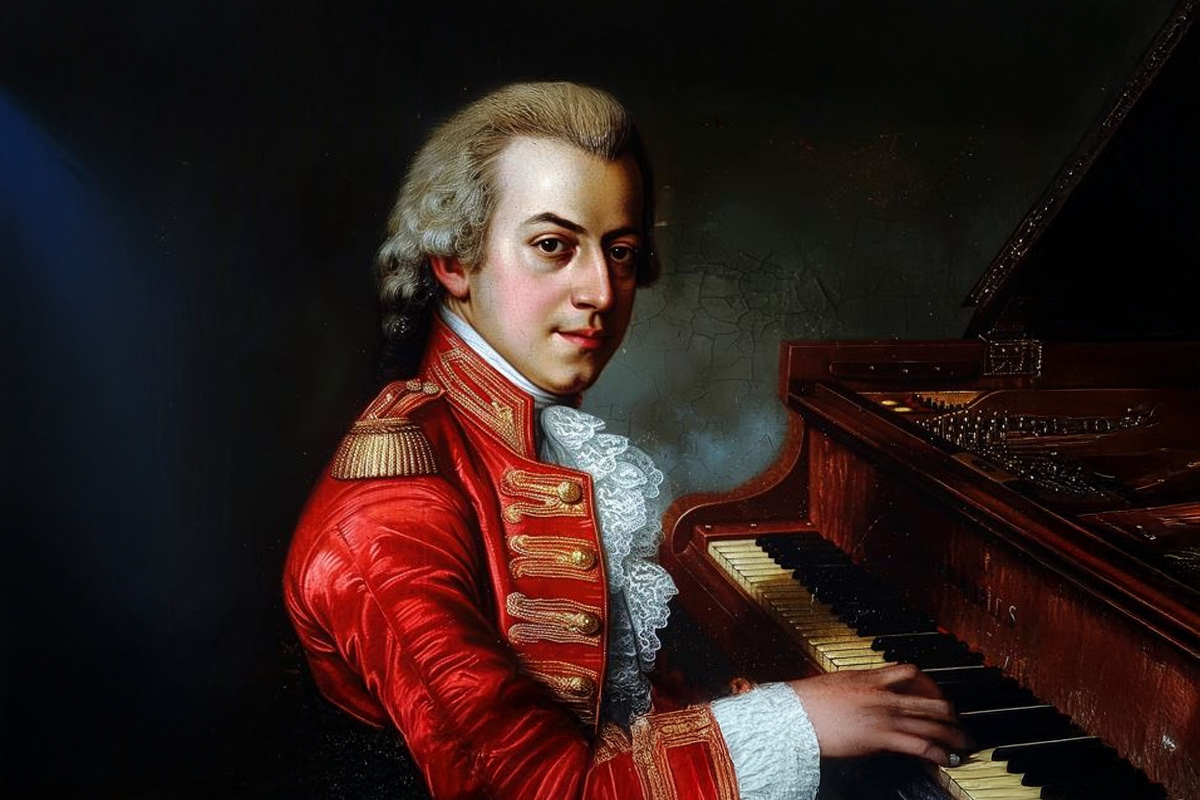Music is part of our lives, we all have a favorite song, artist, group. A melody for sad days and for happier ones or for that special moment.
Classical music is one of the oldest and longest-lived musical genres, it will never go out of fashion and the most famous pieces by composers such as Mozart, Beethoven or Chopin will never stop being heard.
You probably heard classical music for the first time at school or perhaps at home, music is part of our education, our culture, our history. For this reason, we have dedicated this post to talk a little more about the origin, legends and milestones of classical music.
Origin of classical music
Classical music is understood as any composition that emerged during the era of classicism, which spans from 1750 to 1820. This musical style was born as a way of breaking away from the strict rules of baroque music, which was characterized by its horizontal structure where several melodies were superimposed at the same time.
The 18th and 19th centuries were the formative period of classical music and saw the birth of the opera and the oratorio, the sonata, the concerto and the symphony. The Italians were the first to develop these genres, but they were soon followed by the Germans, Austrians and English. Classical music emerged by taking elements from other Western musical traditions, both liturgical and secular, such as the music of Ancient Greece or Ancient Rome, and underwent a synthesis with the musical traditions of the new territories.
In musical classicism, three types of musical compositions were also created:
- The sonata: music written for several instruments.
- The symphony: music to be performed by an orchestra.
- The concerto: composition for orchestra performed by several instruments.
Today, we can say that the genre has contributed to the formation of many modern styles, such as rock and pop, in which even sounds typical of classical instrumentation are combined to create new songs.
Classical Artists
Johann Sebastian Bach
Of German origin, Bach stood out for his great mastery of the violin. Many of his compositions were published in the Baroque era. He was characterized by using a very detailed musical technique. Among his most recognized compositions are the Brandenburg Concertos, the St. Matthew Passion and the Sonatas and Partitas for solo violin.
Wolfgang Amadeus Mozart
Who doesn’t know Mozart? This prodigy of Austrian origin mastered the piano and was skilled with other instruments such as the violin. His talent and skill began at a very early age; he was already composing at the age of five. Some of his best works are The Magic Flute, The Marriage of Figaro and his well-known Requiem, which he composed during his final days.
Ludwig Van Beethoven
He is one of the best-known classical musicians. He was born in Bonn, a city in Germany in 1770 and despite being successful as a composer, he did not have an easy life, especially when his hearing was affected and he began to lose his ability to hear, hence also his great musical ability and achievement. The 32 piano sonatas and the Ninth Symphony are two of his most famous works.
Frédéric Chopin
Of Polish origin, Chopin is considered one of the best musicians of Romanticism. His Piano Concerto No. 2 Op. 21 in F minor is probably the most outstanding composition he has made. The careful technique that can be appreciated in his works has earned him comparisons with artists of the stature of Beethoven or Bach.
Salieri and Mozart: truth or legend?
Considered a benchmark of Viennese classical music, Salieri had a profound influence on other artists such as Beethoven, Schubert and Liszt. His works caused a furore for decades throughout half of Europe. He was also a teacher of vocal technique, piano and counterpoint. However, Antonio Salieri represents today, above all, artistic envy. The reason is well known, his misinterpreted relationship with the incredible Mozart.
Mozart died in 1791 at only 35 years old. Salieri, in 1825, at 74 and insane. In that same decade, a biography revealed that the Austrian had complained, in agony, of having been poisoned. Salieri would also have proclaimed, blind, senile and in a psychiatric hospital, that he had killed his colleague.
However, various studies have shown that both statements were delusions. Salieri’s were due to mental deterioration. Mozart’s, to a high fever caused by pneumonia that, together with kidney failure, led him to the grave.
So why this legend? A brilliant composer against another successful, but mediocre and intoxicated by jealousy, formed a dramatic game too tempting to ignore. In fact, when the film Amadeus swept the Oscars in 1985, it only amplified on a massive scale a distorted story that had been heard for a long time.













